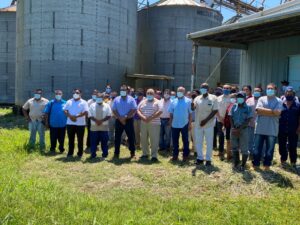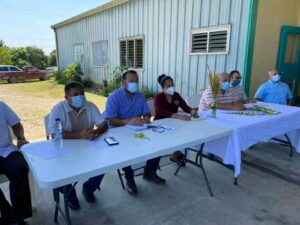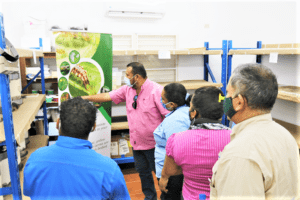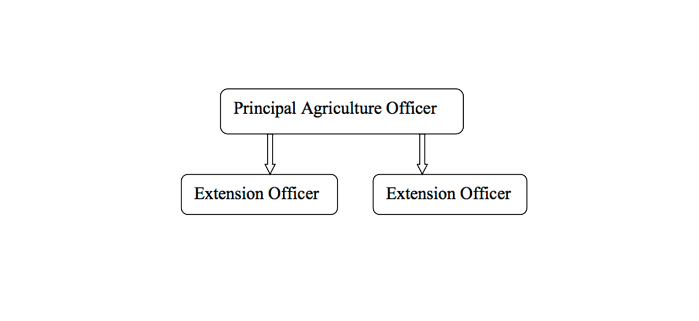Revival of the Rice Production Program for Toledo (Rice Milpa Farmers)
Hon. Jose Abelardo Mai, Minister of Agriculture, Food Security and
Enterprise, attended a special ceremony to commemorate the launch of the
revival of the Rice Production Program in Toledo on March 25, 2021 at the
Rice Mill in Big Falls Village.
The revitalization of the industry will ensure that the agriculture sector in the
Toledo District and the country is developed for income generation, the
improvement of farms and the livelihoods of families.
After the ceremony, farmers were engaged in open discussions focused on
varieties of seeds to be planted, quality and payment, and the technical
collaboration that will be provided to the farmers by the Ministry of
Agriculture.
Minister Mai was joined by Hon. Oscar Requeña, Minister of Rural
Transformation, Community Development, Labour and Local Government
and area representative for Toledo West; Hon. Michael Espat, Minister of
State in the Ministry of Finance, Economic Development and Investment and
area representative for Toledo East; and Mr. Valentino Shal, Chief Executive
Officer in the Ministry of Rural Transformation, Community Development,
Labour and Local Government. Other personnel present included rice
farmers, officers from the Belize Marketing and Development Cooperation,
technical officers from the Ministry of Agriculture, chairpersons of the
villages, and the president and vice-president of the Toledo Alcalde.
Association.









 Belize Honey Production Re-Development Support Project
Belize Honey Production Re-Development Support Project
